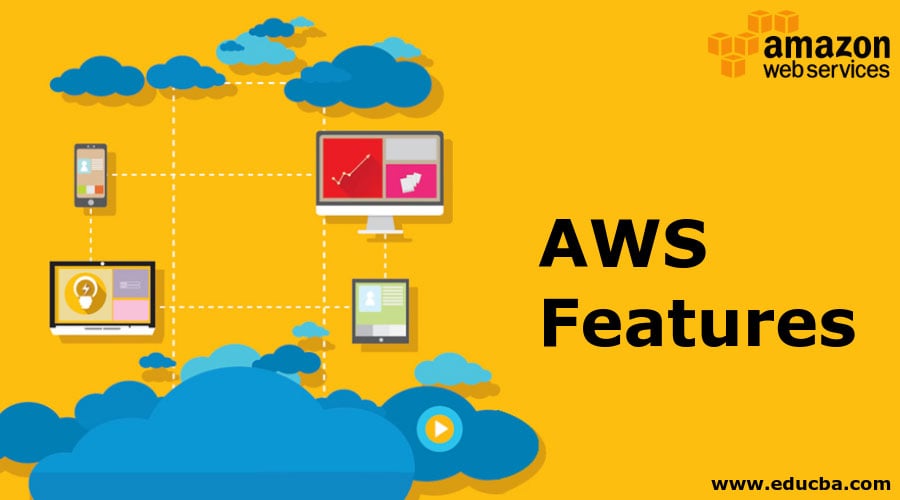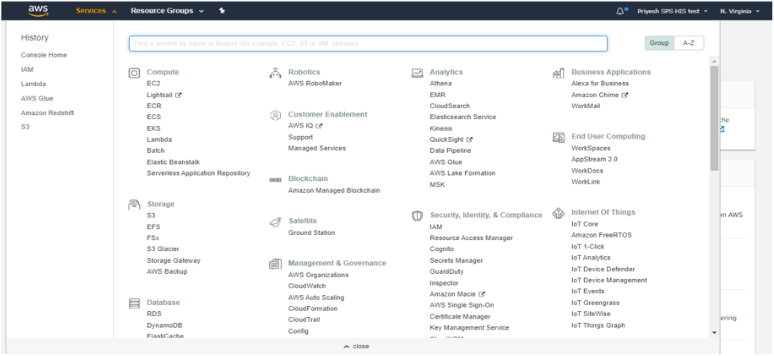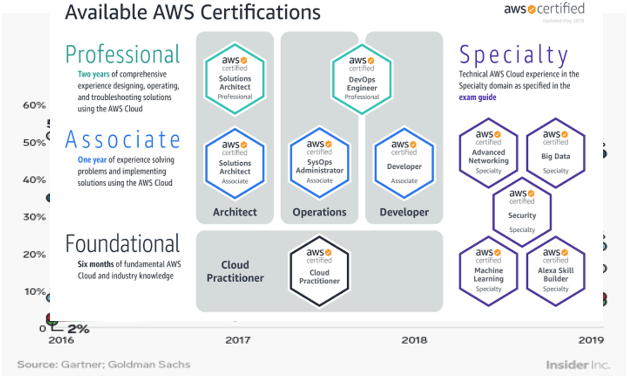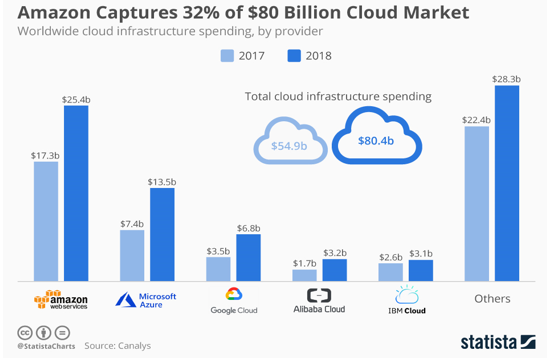Updated May 26, 2023

Introduction to AWS Features
AWS Features are the managed services and functionalities offerings through the AWS cloud platform. It offers several types of cloud services, such as Infrastructure as a service(IaaS), Platform as a service(Paas), and Software as a service(Saas). AWS, a subsidiary of Amazon, provides various services related to Information Technology.
The measure AWS features are computing instances such as EC2, Storage services such as S3, EBS, Network and security services such as VPC or virtual private cloud, user and role management features such as IAM policies, Relation Databases services such as AWS RDS, Autoscaling and load balancing, Serverless computation engine service such as AWS Lambda. The features are added and upgraded in the AWS cloud for better functionalities. AWS offers pay-as-you-go plans for its customers to use the services.
AWS Features
Here is the list of AWS Features mentioned below:
1. Easy sign-up process
In AWS, we don’t need to sign any agreement. We all need an email id and Credit/Debit details, and we are good to go. AWS also offers a free tier for one year, in which most popular services are free up to a specific limit.
2. Simple and Per hour billing
Every instance of every service has micro billing, so if you have an EC2 instance, you will get billed per hour, which is very transparent; even S3 bucket is charged per GB basis. Billing Dashboard in AWS is very simple; they provide an integrated billing dashboard that gives you a report we can pull out per our requirements, like every month, based on services, etc.
3. AWS Encompasses 3 important pillars of Cloud computing
AWS has 3 important pillars IaaS, PaaS, and SaaS, which are explained below.
- IaaS (Infrastructure as a service): The foundation of any cloud architecture is its Infrastructure, and AWS provides basic computing infrastructure such as storage, servers, networking resources, etc., and IT Administrators majorly use it. AWS service EC2 is based on the IaaS concept through which we can set up a website, analyze data, etc.
- PaaS (Platform as a Service): PaaS is mainly used by Software developers as it provides a runtime environment for developing and testing applications without worrying about the Infrastructure. Amazon’s elastic beanstalk is a good example of PaaS.
- SaaS (Software as a service): SaaS allows cloud users to use cloud-based web applications like AWS SNS simple notification service, SES an email service similar to Email services like Gmail or Yahoo Mail.
4. Omnipresence
AWS Cloud spans 69 Availability Zones within 22 geographic regions around the world, and it has 170+ services to offer as of the year 2019, which are divided into various groups like compute, Storage, Security, Analytics, etc. As shown in the picture below.
5. Scalability and Elasticity
In AWS, scalability is the ability to scale up, scale out or scale down the computing resource when demand increases or decreases. For this in AWS, we have Auto Scaling service.
Elasticity is the ability to distribute the incoming application traffic across multiple targets such as IP addresses, Instances, messaging services, containers, etc. For this, we have an Elastic load balancer service in AWS.
6. Flexibility
In AWS, you can choose your Operating System, Programming language, Database type, the location where you want to deliver your content, etc., and pay only for what you use without any commitments. This will help you focus more on development and business rather than learning technologies you are unaware of or don’t have the expertise and build your Infrastructure with the existing skills. In programming languages, you can choose among Java, python, go, json, ruby, C Sharp, Node JS, etc.
With AWS CloudFormation, you can migrate your on-premise application to the cloud easily and cost-effectively. With AWS OpsWorks, you can update multiple resources in seconds. This will help you spend more time on the application development and its growth rather than worrying about Infrastructure.
7. Great deal of Amazon’s services
Here is a brief description of some popular Amazon Services.
- EC2(Elastic compute cloud):
This service gives you bare servers/machines to launch and run your Software. You can select the capacity and processing power of the machine based on your requirements.
- VPC (Virtual Private Cloud)
AWS doesn’t allow full control over the cloud; instead, they give you chunks of their VPC cloud. VPC lets you create networks in the cloud and then run your servers in those networks.
- S3(Simple Storage Service)
S3 allows you to upload and share files by creating S3 Buckets similar to folders; it is primarily a file storage system, not block storage. You can also host a static website in S3.
- Relational Database Service
RDS allows you to run and manage the database on the cloud. RDS has all the major types of DBs right, from SQL Server to PostgreSQL; RDS we can create DB and allocate memory according to our requirements and also make them failure-proof with the help of cross-region replication, recently AWS has launched Aurora, which they claim to be very high-performance DB.
- Elastic Load Balancing (ELB) and Auto-Scaling
This service allows you to load and balance incoming traffic to multiple machines. This way, you can scale up your web application to any number of users. We also have auto-scaling, which adds capacity on the fly to ELB so that your application is never down due to load.
- AWS Lambda
It is a serverless computing engine. In Lambda, you must provide a proper code to complete your work and pay only for computing time. AWS Lambda automatically scales according to workload. It supports Python, node.JS, C sharp, Ruby, Go, and Java.
8. Stability and Trusted Vendor
The Availability and Durability of many of Amazon’s services are around 99.99% which is one of the reasons companies like Spotify, Netflix, Adobe, and Airbnb host their data on AWS.
9. Simple Learning & Certifications
AWS provides detailed documentation for each service and has AWS training and Certification programs, making learning and understanding AWS simple. AWS Certifications are one of the most valued certifications in the market
AWS is also a market leader in 2019, as shown in the picture below.
Conclusion
Due to high-quality, regularly updated services, 24×7 support, detailed documentation for each service, and lower price than other cloud services providers and traditional infrastructure AWS have the highest market cap. Besides this, Amazon also makes huge investments to expand its network and introduce more technologically advanced yet easy-to-use services.
AWS also has an active community that can help users understand the AWS environment and discuss any difficulties they face during development. AWS also has default templates for many services that help users avoid reinventing the wheel. All these features of AWS make it the Market Leader.
Recommended Articles
This is a guide to AWS Features. Here we discuss the list of Amazon Web Services Features which help firms by providing quality services and supporting their businesses. You can also go through our other related articles to learn more –









